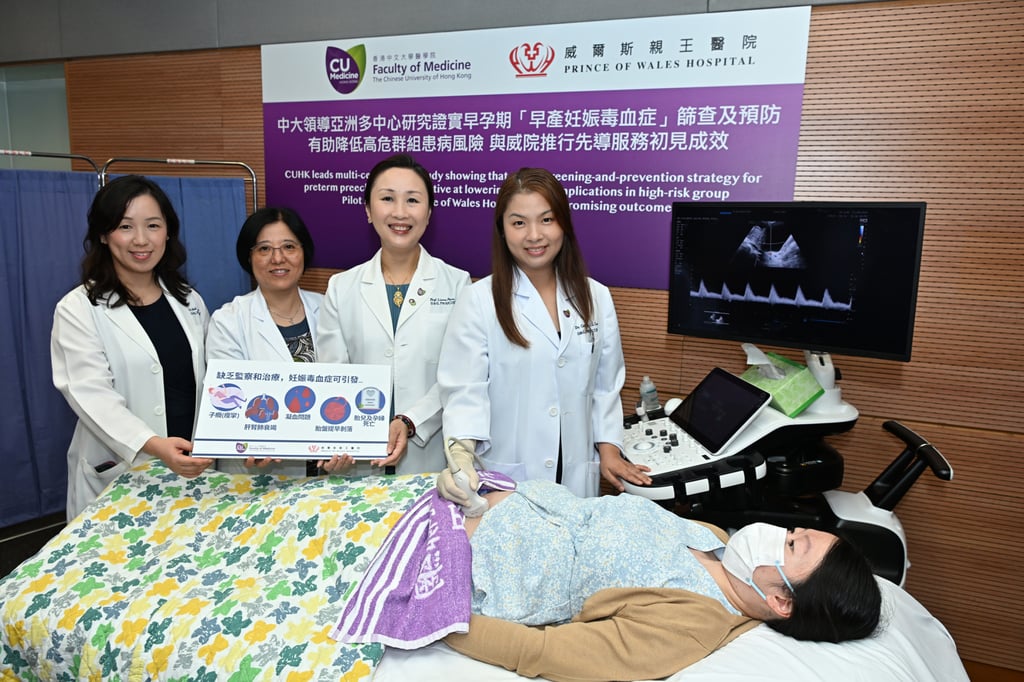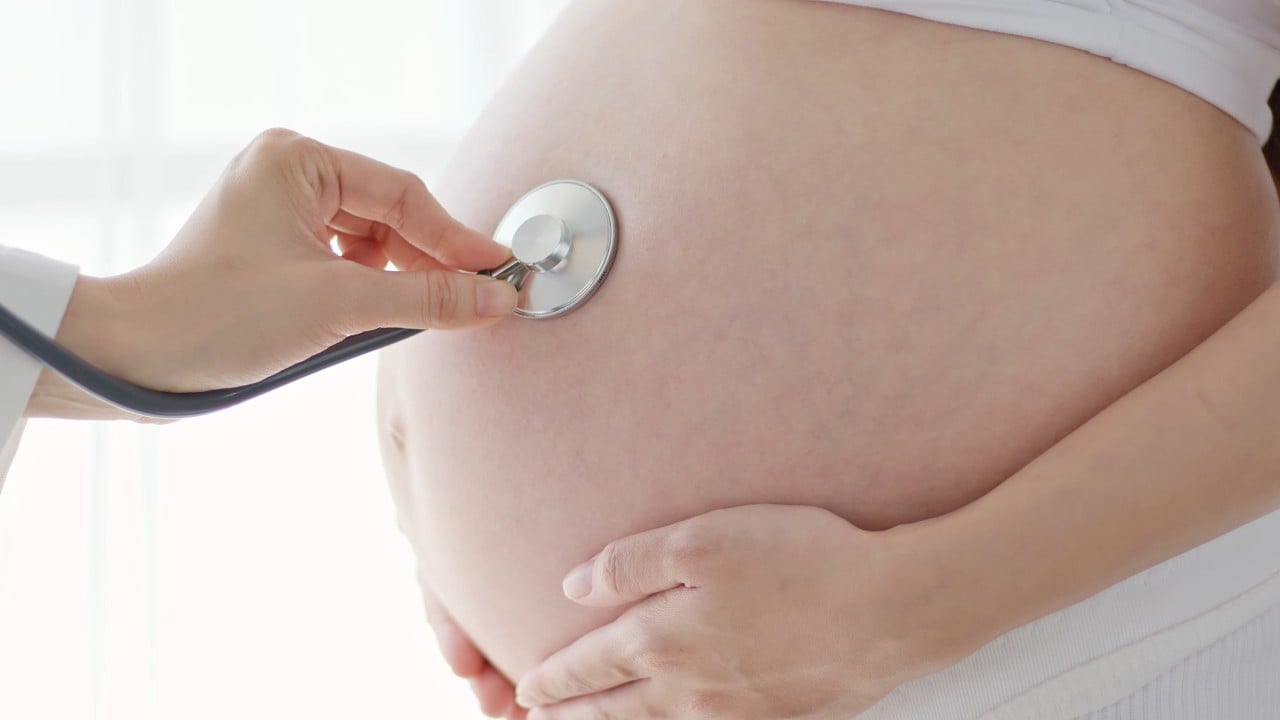A study led by a Hong Kong team covering 10 Asian regions has found that early screening and low doses of aspirin can lower the risk of pregnant women developing a serious complication that causes high blood pressure.
Researchers from the Chinese University of Hong Kong (CUHK) on Thursday said those interventions could reduce the risk of preterm pre-eclampsia by more than 40 per cent, and could also reduce by over 60 per cent the risk of perinatal mortality – deaths occurring between 24 weeks of a fetus’ gestation and a week of an infant’s birth.
They said early detection to identify high-risk individuals and giving them a low dose of aspirin, a common over-the-counter medication, was an effective intervention against preterm pre-eclampsia, a dangerous and potentially fatal condition.
A free pilot screening and prevention service for pre-eclampsia has been carried out at Prince of Wales Hospital in Sha Tin. It will also be rolled out at another seven public hospitals starting next year.
“We suggest screening in early pregnancy, at around 11 to 13 weeks, to identify those at high risk. We hope to prevent pre-eclampsia from happening,” said Professor Liona Poon Chiu-yee, chairwoman of the university’s department of obstetrics and gynaecology.
Pregnant women with pre-eclampsia often have high blood pressure and high levels of protein in their urine.
The condition affects about 2 to 8 per cent of pregnant women worldwide, causing the deaths of 76,000 women and 500,000 babies each year. It is one of the leading causes of maternal and perinatal morbidity and mortality globally.
The team collaborated with researchers from other Asian regions, including mainland China, Taiwan, Japan, Thailand, Vietnam, Indonesia, Singapore, Malaysia and the Philippines in the study, which screened women between August 2019 and February 2022.

Using a test co-developed by Poon and Britain’s Fetal Medicine Foundation in 2009, the CUHK study screened a total of 42,897 women in early pregnancy between 11 to 13 weeks to assess their risk of preterm pre-eclampsia.
Those found to be at high risk were given low-dose aspirin, at 160mg per day.
Results showed that low-dose aspirin reduced the incidence of preterm pre-eclampsia by 41 per cent, and early onset pre-eclampsia by 54 per cent.
The risk of spontaneous preterm birth was lowered by 55 per cent, and perinatal death by 66 per cent, according to the findings.
Poon said the study had proved low-dose aspirin was a safe intervention measure for preterm pre-eclampsia, but added that only those found to be at high risk of developing the condition through screening should be given the medicine.
The study also showed that 88 per cent of respondents accepted the screening strategy.
“Although the idea and tool of screening for preterm pre-eclampsia originated from Western countries, this study showed that pregnant women across Asia highly accepted the screening and prevention strategy,” Poon said.
The study was published in the medical journal Circulation in June.
Since April 2022, the research team has collaborated with Prince of Wales Hospital’s department of obstetrics and gynaecology in a pilot programme to provide free pre-eclampsia screening and prevention services.
More than 10,000 pregnant women have been screened, with 1,350 identified as high-risk individuals and provided with follow-up prevention measures.
The team said the screening and prevention services would also be rolled out for free at Pamela Youde Nethersole Eastern Hospital in Chai Wan early next year, and six other public hospitals during the 2025-26 financial year.


